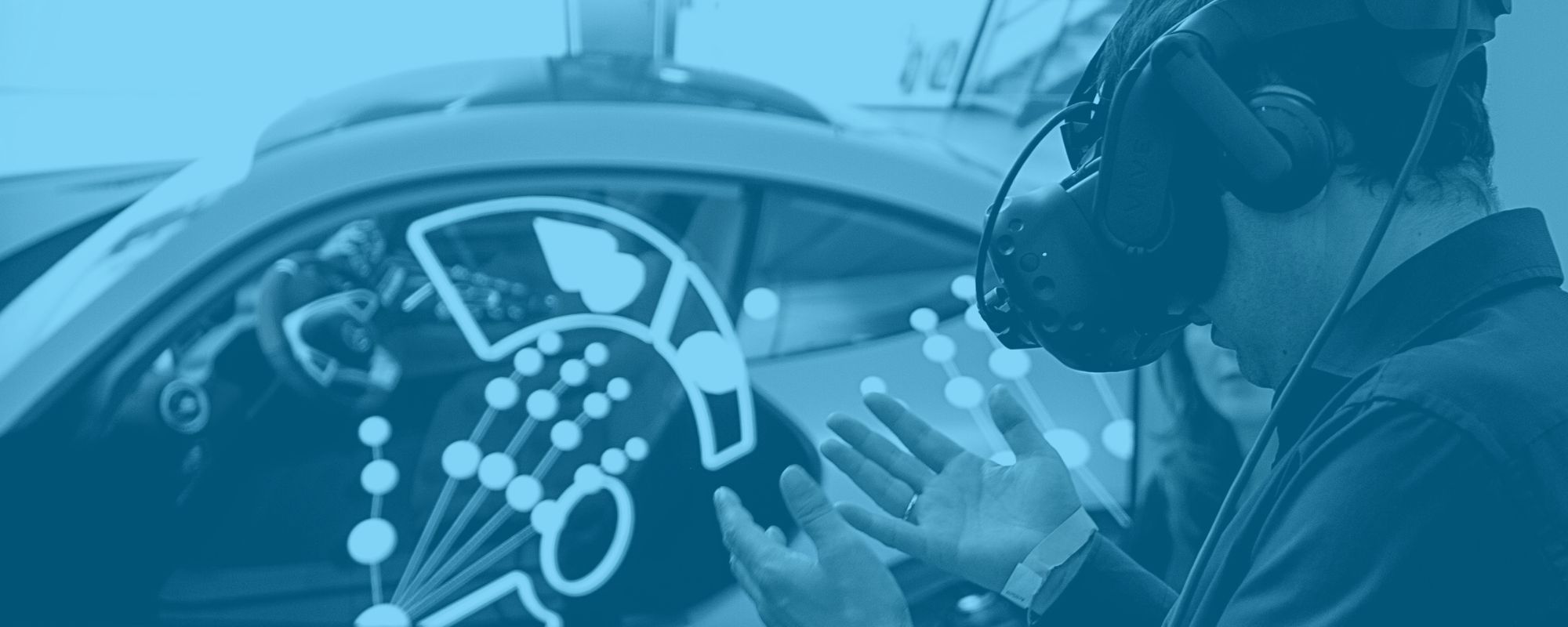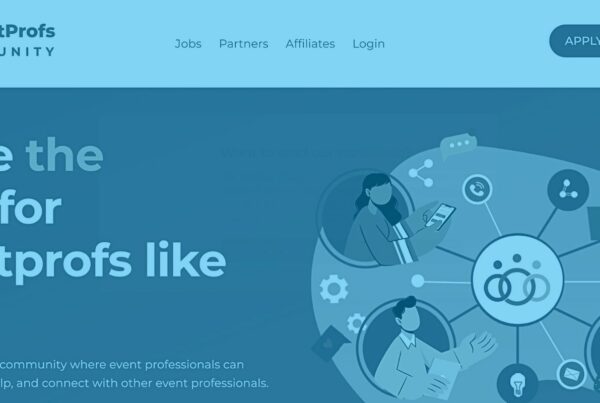As event professionals, we’re always looking to explore new methods, techniques, and technologies to make each event better than the last. Virtual reality (VR) is a topic we often discuss on the Event Tech podcast and has been a technology growing in popularity in recent years. But with the adoption of VR technology comes an important question: will people change their lifestyle to attend VR events?
Endless Events has articles on VR dating back to 2017. Still, VR technology has been slow to make a splash in the average household. Bulky, uncomfortable, and impractical hardware has largely been to blame. But will people be more willing to change their lives to integrate this new tech? Join Will and Brandt as they search for an answer and share their thoughts on what will catapult VR tech forward.
Will People Change Their Lifestyle for VR Events?
Will begins this episode by shouting out to the listener who submitted today’s topic. “Today, we have an audience question. Jorge Pakk asked, ‘Do you believe people will change their lifestyles to attend (educational) VR events?’ I think this is a good annual check-in: are things going to change? Will VR change the events industry?”
“I love the phrasing, changing their lifestyle,” says Brandt. “That opens up so many possibilities; it got us chatting about what lifestyle change means. The first thing that pops into my mind is that some people have a dedicated VR area in their house. Some people have already started to change their lifestyle.”
“I designed my living room to make room for VR,” adds Will. He thinks advancements in VR will continue to make it easier for people to engage with the technology. Still, he wonders if the current challenges in adopting VR at home are what hold it back from widespread adoption.
“To a certain extent, absolutely,” says Brandt. He points to how uncomfortable and clunky VR tech can be as something preventing its adoption. “For the most part, your eyes get tired, and your head gets sweaty. I do feel like things are going to change relatively soon. Oculus was the first to put much higher resolution screens in and make battery-powered sets rather than tethered ones. But it was still pretty bulky and heavy.”
Brandt raises a good point that improved technology may act as a compromise and encourage people to meet the tech halfway. “As Apple continues to work on this mythical VR headset, they’re supposedly coming out with, it’s going to be thinner, lighter, battery-powered, and all of the things we know Apple loves to do. So, now maybe I do want to rearrange my living room. Maybe I do want to dedicate an entire room of my house to VR because I can be in it longer.”
The Importance of Hardware, Software, and Community
Beyond lifestyle changes like rearranging furniture, Brandt and Will also briefly consider how our social lives inform our tech choices.
“With the adoption of hardware becoming easier to use, I think more people will use it. But imagine that, in many ways, we’re divided around technology right now. For example, the Android vs. iPhone, green bubbles vs. blue bubbles,” explains Will. “I sold my VR headset a couple of months ago. No one else is using this. I don’t find a lot of value in being able to meet random people on VR. I’d rather play games with the friends I already have. So I chose to invest in things like the PlayStation five.
“I think until they start getting lighter and have longer battery life, it’s hard to sell people on putting this bulky, heavy, sweaty headset on for longer than 30 minutes. And that’s where we come back to Jorge’s question,” says Brandt. “VR is an amazing tool for doctors who want to practice in a virtual world, or anytime you’re trying to learn something in the first person view. There are so many educational opportunities. So maybe that’s the lifestyle change; if you’re going to use VR as part of education, acknowledging that you can’t do 90-minute lectures. You have to do it in 20-minute chunks.”
Will agrees. But in a world where people despise even minor changes to platforms like Facebook and Instagram, it could be challenging to adopt a new platform and new technology just for VR. But, according to Will, all technology changes our lives to some extent. “My lifestyle changed when I switched to the iPhone,” says Will. “I’m wondering if people will potentially have to switch platforms. For example, Apple already has a huge ecosystem. It’d be very easy to start building upon their reality OS. But let’s say Apple doesn’t do groundbreaking VR, and it’s instead some new platform. I think it’s going to require people to switch platforms completely.”
“It feels like the next big thing in VR will not be software. It will be hardware. At this point, the way we’re going to start seeing higher user adoption rates won’t be with a killer app,” says Brandt. “The thing that drives people to buy them could be weight and good battery life. That’s what’s going to drive the next wave.”
Will VR Reduce Travel and Empathy Along with it?
Next, Will and Brandt think about the VR implications for travel. Will people travel as much in a world where they can have immersive experiences in their homes? And how would that affect empathy?
“Will VR make you more close-minded?” asks Will. “They always say travel is the best way to educate someone about different cultures and expose them to different ideas. Does VR allow you to do that more? Or, because you physically can’t do it, do you do it less?”
“It could be a door opener, an appetizer if you will,” says Brandt. “I feel it’ll be good for culture, but it won’t cure it. People who want to be in their own little bubble will be in their own little bubble. Their headset is going to be what they want to see and do. But I think every little bit helps.”
Will agrees. “Right now, the internet exposes you to so much stuff. But there are still so many people who are in their closed worlds. It’s not like VR is going to undo that instantly.”
“But that’s where education can help,” adds Brandt. “For example, ‘We’re going to learn about ancient Rome. Here we go to the Coliseum.’ And it goes from ruins to what it looked like back in the day. Now there’s a gladiator event, and it’s terrible and gory. You realize, maybe it’s not the coolest thing on the planet. There is an empathy potential with these things. Some news and human rights organizations have put together powerful 360-videos that put you in uncomfortable situations to help you understand their reality.”
“I think the best hope we can have is that it will give an even more in-depth experience that will connect people on a whole new level, ‘says Will. “I think that’s the hope with VR events; that the difference between watching a 2D video and being in it, seeing it all around you, makes it click even further. One of the most exciting things about this education piece is that people can learn something new.” (For an example of a VR series, check out “Women human rights activists.”)
Final Thoughts
“I think there’s a lot of hope and possibility,” says Brandt. He emphasizes that we should be excited about VR for the right reasons and not just use it because it’s new and has potential. “Let’s be excited because VR is the right tool for the job because it will give people access to tools and models and environments they might not normally have access to. Our lifestyles will probably change as technology continues to evolve.”
“So true,” says Will. “With all technologies, we’ve learned that they change us in so many different ways. For example, the adoption of remote work and online or virtual events. I think that’s just something to always keep in mind.”
What do you think? Are people going to change their lifestyles for VR? Or will it take some significant shift in software, hardware, or community to push people to adopt this new technology? We want to hear your thoughts. Email us! And finally, a big shout out to Jorge for sending us today’s question. We love reading your responses and addressing them in podcast episodes. We’ll catch you here next time for another Event Tech episode.








